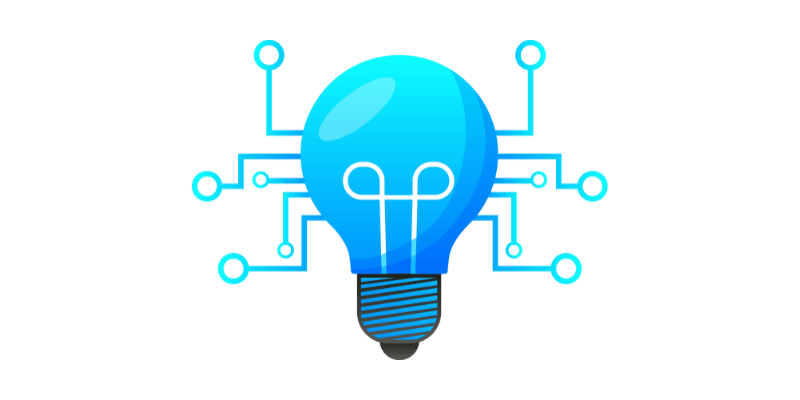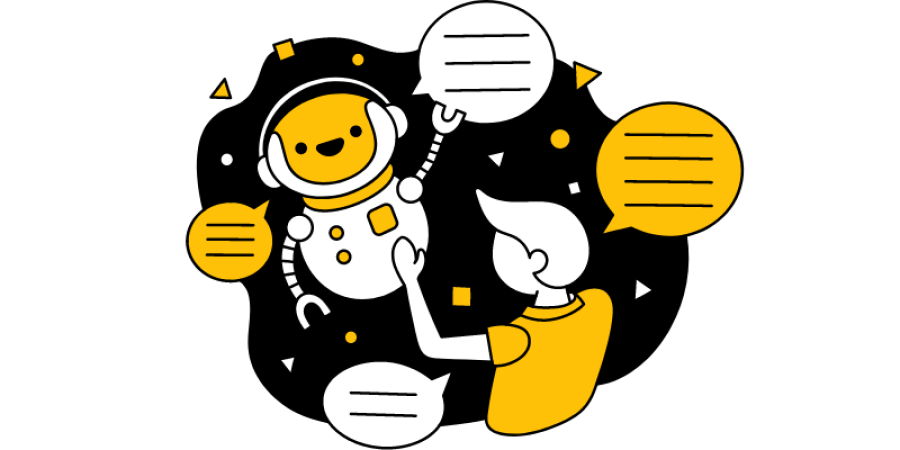What are the Applications of AI?
What are the Applications of AI?
Introduction
Artificial Intelligence (AI) is revolutionizing the world as we know it. From transforming industries to enhancing everyday life, the applications of AI are vast and diverse. In this article, we will explore the various domains where AI is making a significant impact and revolutionizing the way we live and work.
Understanding AI
Before delving into the applications of AI, let's first gain a basic understanding of what AI is. AI refers to the simulation of human intelligence in machines that are programmed to think and learn like humans. It involves the development of intelligent systems that can perceive, reason, learn, and solve problems autonomously.

Applications of AI in Healthcare
1. Improving Diagnosis and Treatment: AI algorithms can analyze vast amounts of medical data, including symptoms, patient history, and diagnostic reports, to assist doctors in accurate diagnosis and treatment planning.
2. Drug Discovery: AI-powered algorithms can analyze massive datasets to identify potential drug candidates, significantly speeding up the process of drug discovery and development.
3. Personalized Medicine: AI can analyze individual patient data to develop personalized treatment plans, taking into account factors such as genetics, lifestyle, and medical history.
4. Remote Patient Monitoring: AI-enabled devices can continuously monitor patients' vital signs and alert healthcare providers in case of any abnormalities, enabling timely interventions.
5. Robotic Surgery: AI-powered robots can assist surgeons in performing complex procedures with precision, minimizing the risk of human error.
Applications of AI in Finance
1. Fraud Detection: AI algorithms can analyze large volumes of financial data to identify patterns and anomalies, helping detect fraudulent activities and prevent financial losses.
2. Algorithmic Trading: AI-based trading systems can analyze market data in real-time and execute trades at high speeds, enabling better decision-making and maximizing profits.
3. Risk Assessment: AI models can assess creditworthiness and evaluate risks associated with lending, insurance, and investments, enabling more accurate risk management.
4. Chatbots and Virtual Assistants: AI-powered chatbots and virtual assistants can provide personalized customer support, answer queries, and assist with transactions, enhancing customer experience in the financial industry.
5. Financial Planning: AI algorithms can analyze individual financial data and provide personalized recommendations for budgeting, savings, and investment strategies.

Applications of AI in Education
1. Personalized Learning: AI-powered systems can adapt educational content to individual learning styles, pace, and preferences, enhancing the effectiveness of education and improving student engagement.
2. Intelligent Tutoring: AI-based tutoring systems can provide personalized guidance and feedback to students, helping them master complex concepts and improve their learning outcomes.
3. Automated Grading: AI algorithms can evaluate student assignments and provide instant feedback, saving teachers valuable time and providing students with timely insights.
4. Educational Content Generation: AI can generate educational content, such as quizzes, lesson plans, and study materials, based on individual student needs and curriculum requirements.
5. Identifying Learning Disabilities: AI-powered tools can analyze student performance data and identify potential learning disabilities or areas where additional support may be required.
Applications of AI in Transportation
1. Autonomous Vehicles: AI technologies, including computer vision and machine learning, are driving the development of autonomous vehicles, which have the potential to revolutionize transportation by enhancing safety and efficiency.
2. Traffic Management: AI algorithms can analyze real-time traffic data and optimize traffic flow, reducing congestion and improving overall transportation efficiency.
3. Predictive Maintenance: AI-enabled systems can analyze sensor data from vehicles and predict maintenance requirements, enabling proactive maintenance and minimizing downtime.
4. Smart Logistics: AI-powered logistics systems can optimize routes, manage inventory, and automate supply chain processes, leading to more efficient and cost-effective operations.
5. Intelligent Transportation Systems: AI can facilitate the development of intelligent transportation systems that integrate various components, including vehicles, infrastructure, and communication networks, to enhance overall transportation performance.
Applications of AI in Retail
1. Personalized Recommendations: AI algorithms can analyze customer data and behavior to provide personalized product recommendations, enhancing the shopping experience and increasing customer satisfaction.
2. Inventory Management: AI-powered systems can analyze sales data, trends, and external factors to optimize inventory levels, reducing stockouts and minimizing inventory holding costs.
3. Dynamic Pricing: AI algorithms can analyze market dynamics, demand patterns, and competitor prices to adjust prices dynamically, maximizing revenue and profitability.
4. Visual Search: AI-based visual search tools can enable customers to find products by uploading images, enhancing convenience and improving the accuracy of search results.
5. Chatbots and Virtual Assistants: AI-powered chatbots and virtual assistants can handle customer inquiries, provide product information, and assist with purchases, improving customer support and reducing response times.

Frequently Asked Questions (FAQs)
Q1: What are the major benefits of AI?
Ans: AI offers numerous benefits, including increased efficiency, improved accuracy, enhanced decision-making, automation of repetitive tasks, and the ability to analyze vast amounts of data.
Q2: Are there any ethical concerns related to AI?
Ans: Yes, the rise of AI raises ethical concerns such as privacy issues, algorithmic bias, job displacement, and the potential for misuse of AI technologies.
Q3: How is AI transforming the manufacturing industry?
Ans: AI is transforming the manufacturing industry through automation, predictive maintenance, quality control, supply chain optimization, and the development of smart factories.
Q4: Can AI be used for environmental sustainability?
Ans: Yes, AI can be used for environmental sustainability by optimizing energy consumption, managing waste and resources, analyzing climate data, and developing eco-friendly solutions.
Q5: What are the future prospects of AI?
Ans: The future of AI holds great promise. Advancements in AI technologies, such as deep learning and reinforcement learning, along with increased computing power, are expected to drive further innovation and applications across various industries.
Q6: How can AI be used in cybersecurity?
Ans: AI can be used in cybersecurity to detect and prevent cyber threats, identify patterns of suspicious activities, analyze network traffic, and develop proactive defense mechanisms.
Conclusion
The applications of AI are expanding rapidly across various domains, revolutionizing industries and transforming the way we live and work. From healthcare and finance to education, transportation, and retail, AI is paving the way for innovation, efficiency, and enhanced experiences. As AI continues to evolve, its impact on society will only grow, making it crucial to harness its potential responsibly and ethically.









Comments (0)